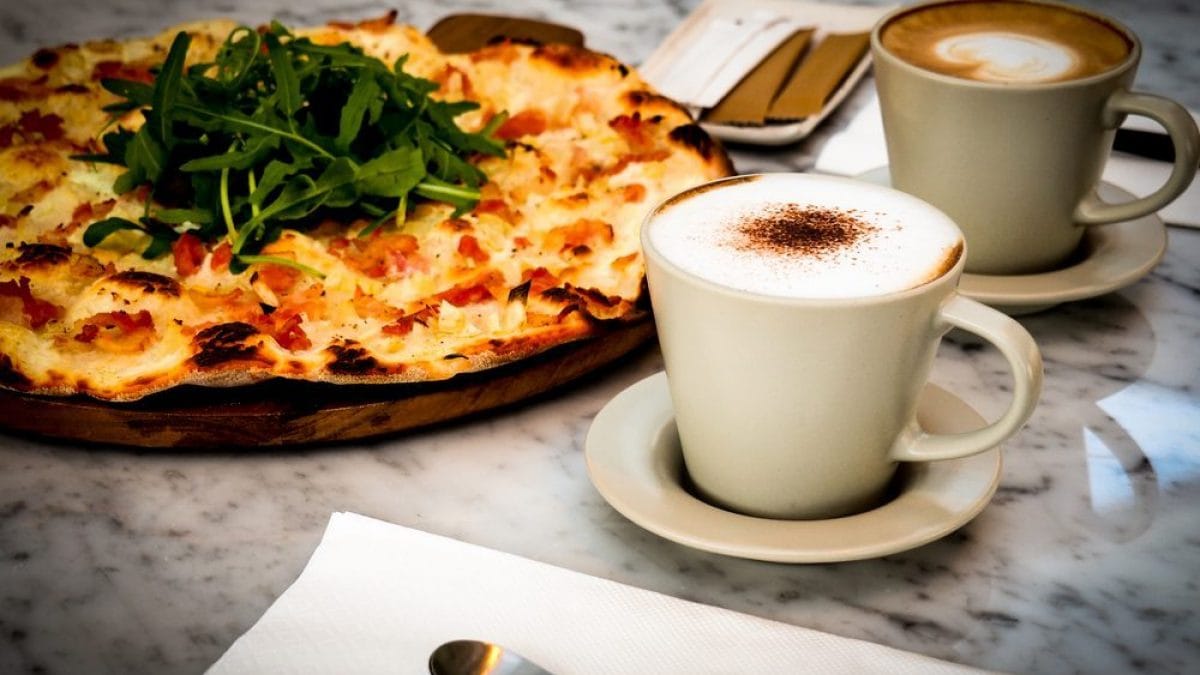
Is burping at the table really considered bad manners? Is using toilet paper instead of napkins or making noise while eating strange or wrong? In some cultures in certain countries these are common and sometimes necessary actions and today I will explain some of the strangest habits during moments at the table.
Toilet Paper During Meals in Korea
Yes, you read that right, if you are planning a trip to discover South Korea, in most cases you will find toilet paper instead of napkins. To avoid any misunderstandings, however, it is good to know that the toilet paper used in South Korea is not taken from the bathroom and placed on the table specifically for the occasion. In Korean supermarkets, in fact, this product is sold in packs of twenty or thirty rolls precisely for the dual use between the bathroom and the dining room. Another peculiarity of Korean etiquette is respecting age roles in convivial moments when you sit at the table. It is the oldest person who sits at the head of the table and starts the dance, until he starts eating, no other diner can start.
Burping After a Meal in China is Good Manners
Are you at a restaurant in China and want to let the chef or the other diners know that you enjoyed the food? Just burp and they will have understood your appreciation. Well, as bizarre as this habit may seem, burping freely after a meal is a common habit and certainly not a sign of rudeness as in Western countries. However, it is fair to remember that, as time goes by, in China they are increasingly adapting to Western habits, so burping after a meal is not always well accepted. This happens especially in formal contexts where, just like in our country, it is considered an inconsiderate and rude gesture.

In Japan, Making Noise While Eating is Good Manners
One of the most famous dishes in Japan is undoubtedly ramen, which is also renowned for the way it is eaten. It is very common to enter restaurants that prepare this dish and see diners eating it noisily. Bringing the ramen to your mouth and sucking the noodles not only helps to avoid burning your tongue, but also to show that you are enjoying the food. Unlike what happens in Western countries, in Japan it is almost obligatory to make noise while eating ramen.
Don't try this dish the same way you would spaghetti: to enjoy ramen like the locals do, you have to be as loud as possible because it would almost be rude not to do so. In some circumstances, the gesture could even be forgiven as a tourist. In any case, if you are about to leave for Tokyo or Kyoto, it is good to keep this information in mind.
Chopsticks chapter: in Japanese culture, it is considered extremely rude to stab food or pass it from one diner to another using chopsticks. If you have never used chopsticks, ask for traditional cutlery rather than "risk" appearing rude by using them improperly.

Never Ask for Salt and Pepper in Portugal
If you are in Portugal or are about to go there, remember to never ask for salt and pepper while you are at the table in a restaurant. According to local culinary tradition, in fact, asking for salt and pepper in addition is an insult to the culinary skills of a chef. Obviously this is not always the case, but in the popular culture of the Lusitanian country it is something that could be offensive for the reasons we have written above. Maybe we could advise our Portuguese restaurant friends to put salt and pepper directly at the table so that, if the food turns out not to be tasty, they could avoid "insulting" the culinary skills of the chef.
In India You Have to Use Only Your Right Hand
It is well known throughout the world that, during meals in India, the most common habit is to eat with your hands. But be careful which hand you use if you intend to taste bhature, fried bread seasoned with chickpeas and spices. You absolutely must not do it with your left hand. This is used in the bathroom for more "intimate" operations and in fact it is considered dirty. It is better to use the right hand. This has its roots in the issue of "left-handedness", that is, that in ancient times people who mainly used their left hand were not welcome. In Middle Eastern culture, the left hand is considered impure because it is used to carry out other tasks, so it is better to eat with the right hand because doing so with the opposite hand could be an action that is socially and culturally unacceptable.
Never Cut Salad in France
In the etiquette of the transalpine country there is a rule that is, to say the least, curious: do not cut salad with a knife. Although singular, the reason dates back to when silver cutlery oxidized when in contact with salad. Although today's materials are different, this strange habit has remained unchanged.

Cappuccino Always and Only for Breakfast
We cannot but close with one of the habits shown by foreigners who travel to Italy and that most horrifies the Italians: drinking cappuccino as a drink to accompany main meals. Despite the many contents on the web that "ironic" about this aspect, the thing has not been absolutely cleared even if more and more tourists are about to order a cappuccino while they are at the restaurant eating a pizza or a plate of pasta.
;Resize,width=767;)
